HOME | ABOUT US | MEDIA KIT | CONTACT US | INQUIRE
HOME | ABOUT US | MEDIA KIT | CONTACT US | INQUIRE
December 2021
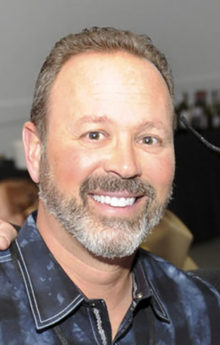 Danny Davies has volunteered for Alphapointe for years, and there’s a deep satisfaction in that. Nothing, though, reinforces the meaning he finds in that contribution of time quite like his encounter with a young girl who once approached him during a benefit golf tournament for the organization, which serves the blind and visually impaired. She was there as part of a youth activity series at the event, allowing young patrons to hit balls, putt or work on drills. The girl was perhaps 8 years old, he says, and she “came directly up to me while I was helping her learn to putt on the practice green. She touched my face and was trying to figure out how I looked in her own mind. She said, ‘You look and sound like a Dad.’” There. Right there: That’s where Davies experienced a moment of fulfillment known only to non-
Danny Davies has volunteered for Alphapointe for years, and there’s a deep satisfaction in that. Nothing, though, reinforces the meaning he finds in that contribution of time quite like his encounter with a young girl who once approached him during a benefit golf tournament for the organization, which serves the blind and visually impaired. She was there as part of a youth activity series at the event, allowing young patrons to hit balls, putt or work on drills. The girl was perhaps 8 years old, he says, and she “came directly up to me while I was helping her learn to putt on the practice green. She touched my face and was trying to figure out how I looked in her own mind. She said, ‘You look and sound like a Dad.’” There. Right there: That’s where Davies experienced a moment of fulfillment known only to non-
profit volunteers. It choked him up for a moment, he admits: “When you get involved with your time and really see what impact an organization has on folks, you cannot help but feel rewarded.” He’s been an integral part of Alphapointe’s volunteer programing for years, carving out time in a busy week that also has him leading C&C Group, a Lenexa-based facilities-systems integrator. His voluntarism is grounded, in part, on lessons of his youth in Kansas City, Kan., focusing on local needs with volunteering and charitable donations. “I learned about volunteering and helping out others in need from my high school basketball coach,” Davies says. “Our team would volunteer every holiday season at either a local food drive or even delivering turkeys door-to-door.” Once he was on his career track, Davies says, “getting involved at a higher level was something I’ve learned from Mike Cillessen and Paul Strohm while at C&C Group. They have been great leaders to follow, demonstrating tremendous generosity with both their time and resources. They are responsible for any board-level engagement I’ve been able to afford.” Strohm, in fact, introduced him to Reinhard Mabry at Alphapointe. “My first activities were to help with our golf tournament, which benefits our youth-services programs,” Davies says. “Seeing first-hand how the impact of our efforts helped local kids was all it took for me and others at C&C Group to be hooked.” Alphapointe is not the sole beneficiary of Davies’ extracurricular activities. He’s also aligned over the years with Hope Faith, Happy Bottoms and Hope House, among others, in volunteer and board duties. “Engaging with local organizations needing your help, one gets to witness the impact it can bring to real people living real lives,” Davies says. “You get to make a difference and see it first-hand in your own community.”
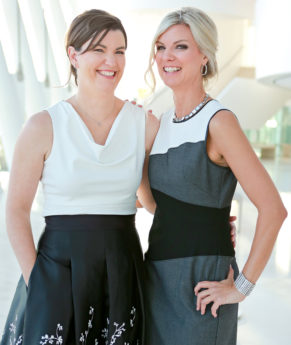 At this time, in this season, the message from Stephanie Guerin and Kelly Hokanson rings with a special clarity: “Do you know what liberals and conservatives have in common right now? They all think the world is going to hell. It’s not. It’s hard to despair when you are helping another person,” they write. “Entire studies have been done demonstrating that a helper often benefits psychologically just from helping. So, there is the truth. It’s selfish to help. You get a purpose. You get a connection. You make a difference. You empower yourself.” And therein lies the source of their shared affection for Operation Breakthrough, the beneficiary of so many dollars and deeds since they started volunteering there—Hokanson as a service-oriented kid growing up in Kansas City; Guerin as a recent college graduate who planted roots here after a childhood spent in multiple states. Together, they founded The Planned Approach, a wealth-management firm that approached $300 million in assets managed before selling earlier this year to a far larger firm, St. Louis-based Buckingham Strategic Wealth. With that deal, they secured $500,000 for Operation Breakthrough, and the new parent’s commitment to continued support there. “During due diligence, we brought six members of the Buckingham C-suite to Operation Breakthrough for a tour,” they say. “There was not a dry eye in the place. We had multiple bids for our firm, but Buckingham made a commitment to Operation Breakthrough as part of their offer. That hooked us.” When they started their firm, they say, “we were two young women with only a few nickels to our name. But as business owners, we were approached frequently for donations. We decided early that to make a significant impact, we needed to concentrate our efforts on one organization that fit our values.” Six months of deep thought led them back to Operation Breakthrough because of the powerful results it produced on a shoestring budget. “It impacts Kansas City’s economy, our education systems, the safety of our community, our environment and even the arts,” they say. “It does this by helping families break through the cycle of poverty, creating networks, education, security and opportunity where none would exist. Operation Breakthrough is a 501(c)3, but you can’t call it charity—it’s an investment in Kansas City. What happens at 31st and Troost, helps everyone in Kansas City by helping so many children and families that would have been forgotten, to instead make a significant contribution to our town.” Looking back at their years of service, they see a value that many can’t fully appreciate, especially for working mothers whose family and careers clamor for limited time. “We contribute because it feeds our souls,” they say. “It makes us more effective mothers, partners, and planners. Making a contribution and forming connection is what we are all here for.”
At this time, in this season, the message from Stephanie Guerin and Kelly Hokanson rings with a special clarity: “Do you know what liberals and conservatives have in common right now? They all think the world is going to hell. It’s not. It’s hard to despair when you are helping another person,” they write. “Entire studies have been done demonstrating that a helper often benefits psychologically just from helping. So, there is the truth. It’s selfish to help. You get a purpose. You get a connection. You make a difference. You empower yourself.” And therein lies the source of their shared affection for Operation Breakthrough, the beneficiary of so many dollars and deeds since they started volunteering there—Hokanson as a service-oriented kid growing up in Kansas City; Guerin as a recent college graduate who planted roots here after a childhood spent in multiple states. Together, they founded The Planned Approach, a wealth-management firm that approached $300 million in assets managed before selling earlier this year to a far larger firm, St. Louis-based Buckingham Strategic Wealth. With that deal, they secured $500,000 for Operation Breakthrough, and the new parent’s commitment to continued support there. “During due diligence, we brought six members of the Buckingham C-suite to Operation Breakthrough for a tour,” they say. “There was not a dry eye in the place. We had multiple bids for our firm, but Buckingham made a commitment to Operation Breakthrough as part of their offer. That hooked us.” When they started their firm, they say, “we were two young women with only a few nickels to our name. But as business owners, we were approached frequently for donations. We decided early that to make a significant impact, we needed to concentrate our efforts on one organization that fit our values.” Six months of deep thought led them back to Operation Breakthrough because of the powerful results it produced on a shoestring budget. “It impacts Kansas City’s economy, our education systems, the safety of our community, our environment and even the arts,” they say. “It does this by helping families break through the cycle of poverty, creating networks, education, security and opportunity where none would exist. Operation Breakthrough is a 501(c)3, but you can’t call it charity—it’s an investment in Kansas City. What happens at 31st and Troost, helps everyone in Kansas City by helping so many children and families that would have been forgotten, to instead make a significant contribution to our town.” Looking back at their years of service, they see a value that many can’t fully appreciate, especially for working mothers whose family and careers clamor for limited time. “We contribute because it feeds our souls,” they say. “It makes us more effective mothers, partners, and planners. Making a contribution and forming connection is what we are all here for.”
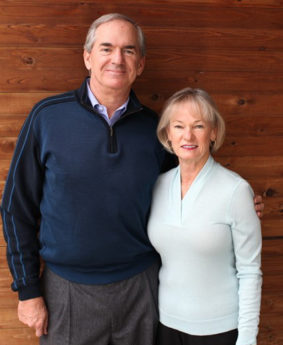 Stability and mobility. Those were very different determinants in the backgrounds of Sherry and Gary Forsee. She grew up in St. Louis and lived in the same house until heading off to Southeast Missouri State University; Gary established his bona fides as the consummate Missourian in a youth spent, at various times, in Hannibal, St. Louis, Kansas City, St. Joseph, Springfield, Cape Girardeau and Joplin. But each learned early about what it means to give, and to get in the game with more than their signature on a check. “My mom would commandeer me to do the neighborhood door-to-door campaigns for March of Dimes and Muscular Dystrophy, and then I would help send the money off to the “headquarters!” says Sherry, who as a Girl Scout made and sold potholders in the neighborhood and took the money to a nearby orphanage. For sure, says Gary, “there were lots of good examples growing up, be that our church, where parents had the full range of volunteerism, to Boy Scouts, to seeing my parents involved in volunteer activities in the community and then at UM-Rolla (now Missouri Science and Technology); the fraternity was a major influence as well. It couldn’t help, with all that, for some to rub off a bit!” For most of his 36-year telecom career, capped by the CEO’s duties at Sprint, Gary also played the civic-engagement card dealt to so many in business leadership, such as Chamber of Commerce chairman in Charleston. With contributions of their time and their financial resources, they’ve supported countless causes in Kansas City, across Missouri, and nationwide. And some of that support came in very big ways: a $2 million donation they made just last year to support precision-health research across the MU system’s four campuses, and $1 million to the system for installation of new technology supporting a distance-education network. The Forsees have a deep history of support for quality-of-life causes, such as museums and theaters, and civic initiatives like the body-camera funding effort to benefit the Kansas City Police Department. “Over time,” says Gary, “we have tried to get a bit more focused on issues like education and community issues in the arts and culture of our town. Sherry became very involved on the United Way board and in recruiting for the Tocqueville Society. Our church is very important to us and our family is an important focus. Paying this forward with our children and grandkids is very important to us to emulate for them in helping where we can.”
Stability and mobility. Those were very different determinants in the backgrounds of Sherry and Gary Forsee. She grew up in St. Louis and lived in the same house until heading off to Southeast Missouri State University; Gary established his bona fides as the consummate Missourian in a youth spent, at various times, in Hannibal, St. Louis, Kansas City, St. Joseph, Springfield, Cape Girardeau and Joplin. But each learned early about what it means to give, and to get in the game with more than their signature on a check. “My mom would commandeer me to do the neighborhood door-to-door campaigns for March of Dimes and Muscular Dystrophy, and then I would help send the money off to the “headquarters!” says Sherry, who as a Girl Scout made and sold potholders in the neighborhood and took the money to a nearby orphanage. For sure, says Gary, “there were lots of good examples growing up, be that our church, where parents had the full range of volunteerism, to Boy Scouts, to seeing my parents involved in volunteer activities in the community and then at UM-Rolla (now Missouri Science and Technology); the fraternity was a major influence as well. It couldn’t help, with all that, for some to rub off a bit!” For most of his 36-year telecom career, capped by the CEO’s duties at Sprint, Gary also played the civic-engagement card dealt to so many in business leadership, such as Chamber of Commerce chairman in Charleston. With contributions of their time and their financial resources, they’ve supported countless causes in Kansas City, across Missouri, and nationwide. And some of that support came in very big ways: a $2 million donation they made just last year to support precision-health research across the MU system’s four campuses, and $1 million to the system for installation of new technology supporting a distance-education network. The Forsees have a deep history of support for quality-of-life causes, such as museums and theaters, and civic initiatives like the body-camera funding effort to benefit the Kansas City Police Department. “Over time,” says Gary, “we have tried to get a bit more focused on issues like education and community issues in the arts and culture of our town. Sherry became very involved on the United Way board and in recruiting for the Tocqueville Society. Our church is very important to us and our family is an important focus. Paying this forward with our children and grandkids is very important to us to emulate for them in helping where we can.”
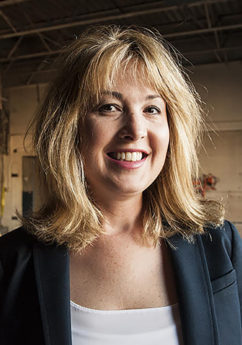
You’re not likely to find many deeply entrenched big-city pathologies in Princeton, Iowa, where Natasha Kirsch grew up near the Quad Cities. There, she was raised in a two-parent household, with a brother and sister, and the expectation that college was the educational path. Doesn’t everyone grow up that way? Uh, no. “My parents told me daily that we could do whatever we put our mind to, we just had to work really hard,” Kirsch recalls. “As an adult, I thought everyone grew up like this. I learned through volunteer work that many of the adults that were homeless and struggling with mental health or addiction heard the opposite of this growing up. Their parents told them they were worthless, not to bother trying for a better life, and were often the ones who abused them, and were typically the source for drugs and alcohol in their life.” But what could she do to help correct some of that? “I wanted to create a program where parents had the opportunity to be good role models to their children, but first basic needs had to be met,” Kirsch says. She created a non-profit called EPEC (Empowering Parents to Empower Children) and through it, set up a program now nearly six years old: The Grooming Project. She saw the potential—skilled training for careers earning $60,000 or more—as a way to mend a gaping hole in the social safety net. Instruction in pet grooming was the solution. For recovering addicts or felons leaving prison, she says, “two things were missing: 1) a living-wage trade that was family-flexible and felon-friendly and 2) coordinated social services. There are a lot of great organizations that train in resume writing, mock interviews, and workplace communications but the parents I knew needed a skill that was in demand (AND all the other stuff). I quickly learned that without addressing the entire package at the same time we will never make headway in helping families out of poverty.” The premise was simple, she says: You can’t focus on learning a skill if you don’t know where you and your kids are going to sleep that night, or if your heat has been shut off in January, or if food stamps won’t be here for another week but you ran out of food yesterday. The Grooming Project boasts a 100 percent placement rate for those who complete the rigorous 644 hours of training, but for those graduates, it has unquestionably broken the cycle of drugs-prison-poverty. The special needs of that segment of the downtrodden once hit home with a patron who once had Kirsch’s ire up over her persistent tardiness for class. But that student’s government free phone couldn’t hold a charge. Worse yet, she was living in an abandoned house, with no electricity to even charge a phone. “When we start to ask ‘why?’ and unpack the barriers,” Kirsch says, “it is amazing how much can change in a short period of time.”
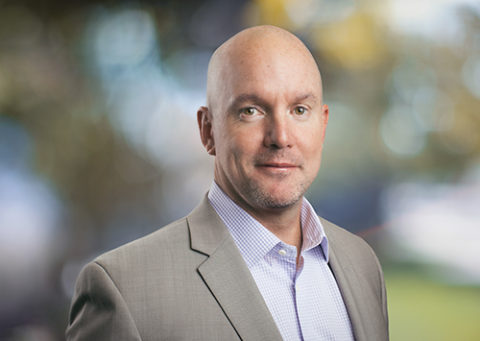 Most of us think of a ZIP code as a helpful tool to get our mail. Matt Sharples sees something far more profound in those five digits. That vision came into focus growing up in Ann Arbor, Mich., as the product of a family separated by divorce. “We were very middle class with one side, but the other side had some money, and did a lot good things with it,” says Sharples, the president and CEO of Tri-Com Technical Services. “So, I guess I learned the value of growing up in the right ZIP code to start out with, but then seeing the other side too—going to school with kids of lesser means, who did not win that ZIP code lottery, so to speak.” That view shapes his own philanthropy today, including the desire to serve. And that fits neatly into the giving spirit of the town he adopted in 1990. “I love Kansas City,” Sharples says. “It’s home and I love how charitable our city is. It’s what makes KC the heart-land!” For a dozen years, Sharples served on the board of directors for MOCSA, which works to improve the lives of those victimized in sexual assaults; three of those years were as board chair. Since 2017, he’s been on the board of trustees for Cristo Rey Kansas City, the Catholic school founded by the Sisters of Charity of Leavenworth. He also volunteers with Skilled KC, a reskilling program founded by the Kauffman Foundation to help individuals gain highly sought-after technical skills, such as software development. On a corporate level, TriCom has supported Big Brothers Big Sisters, Harvesters, among many others; “I candidly don’t want to list them all because for me, it sort of takes away from why I’m doing it,” he says. It’s not easy for him to discuss how he affiliated with MOCSA; he wasn’t a victim, but he confesses that “I was a bit of a mess in 2001,” so he can identify with the loneliness, isolation, and constant reminder of trauma. “MOCSA was very much a cathartic deal for me,” says Sharples, who led a Tri-Com benefit golf tournament for the organization for 20 years. “They may not have known it at the time, but I needed them much more than they needed me. Cristo Rey spoke to me immediately because of how I grew up—with many kids of varied backgrounds and ethnicities, and those who made it out of the shadows out of sheer will and determination.” In the absence of a formal philanthropic strategy, Sharples says, “I just give to what speaks to me and honestly, I’d rather do it and lay low. Some of the best stuff I’ve done has been without anyone knowing, and I want to keep it like that. I feel like it’s something I do to honor the incredible life I’ve been given. I’m not very religious but I am spiritual, and sometimes I can feel God smiling down when I can do something incognito. That’s the best feeling there is.”
Most of us think of a ZIP code as a helpful tool to get our mail. Matt Sharples sees something far more profound in those five digits. That vision came into focus growing up in Ann Arbor, Mich., as the product of a family separated by divorce. “We were very middle class with one side, but the other side had some money, and did a lot good things with it,” says Sharples, the president and CEO of Tri-Com Technical Services. “So, I guess I learned the value of growing up in the right ZIP code to start out with, but then seeing the other side too—going to school with kids of lesser means, who did not win that ZIP code lottery, so to speak.” That view shapes his own philanthropy today, including the desire to serve. And that fits neatly into the giving spirit of the town he adopted in 1990. “I love Kansas City,” Sharples says. “It’s home and I love how charitable our city is. It’s what makes KC the heart-land!” For a dozen years, Sharples served on the board of directors for MOCSA, which works to improve the lives of those victimized in sexual assaults; three of those years were as board chair. Since 2017, he’s been on the board of trustees for Cristo Rey Kansas City, the Catholic school founded by the Sisters of Charity of Leavenworth. He also volunteers with Skilled KC, a reskilling program founded by the Kauffman Foundation to help individuals gain highly sought-after technical skills, such as software development. On a corporate level, TriCom has supported Big Brothers Big Sisters, Harvesters, among many others; “I candidly don’t want to list them all because for me, it sort of takes away from why I’m doing it,” he says. It’s not easy for him to discuss how he affiliated with MOCSA; he wasn’t a victim, but he confesses that “I was a bit of a mess in 2001,” so he can identify with the loneliness, isolation, and constant reminder of trauma. “MOCSA was very much a cathartic deal for me,” says Sharples, who led a Tri-Com benefit golf tournament for the organization for 20 years. “They may not have known it at the time, but I needed them much more than they needed me. Cristo Rey spoke to me immediately because of how I grew up—with many kids of varied backgrounds and ethnicities, and those who made it out of the shadows out of sheer will and determination.” In the absence of a formal philanthropic strategy, Sharples says, “I just give to what speaks to me and honestly, I’d rather do it and lay low. Some of the best stuff I’ve done has been without anyone knowing, and I want to keep it like that. I feel like it’s something I do to honor the incredible life I’ve been given. I’m not very religious but I am spiritual, and sometimes I can feel God smiling down when I can do something incognito. That’s the best feeling there is.”
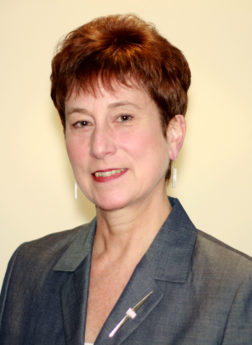 It’s simple, really, this affinity Julie Salmon has with the mission at Harvesters—The Community Food Network. “Everyone needs to eat,” says the longtime volunteer at the region’s biggest food bank. “The most fundamental of needs. I love to eat, cook, all the things associate with that, and I want everyone else to be able to have good food, and access to nutritious food. Harvesters is such a wonderful organization, and they do such good work, so it was only natural as a way to engage.” The non-profit says Salmon has invested thousands of hours of volunteer service there, and she ticks off a long list of duties she’s had over the years—“just about everything a person can do,” she says. She’s held seats on the board of directors, stepped into staff roles that can take longer to fill, and come off the volunteer bench to work full time, and even more so after retiring from Hallmark in 2007. More than just an extra pair of hands, she’s done consulting for Harvesters on organizational design and change management, strategic and succession planning, and was part of the search team that hired Valerie Nicholson-Watson, the current CEO. “Right now, the basic role is ambassador,” Salmon says, “so I go out in the community to speaking engagements, community events, shifts at large food drives like Chiefs kingdom’s drive, and the Renaissance festival. So I’m a volunteer, donor and advocate.” She perceives need in ways that differ from most of us who have grown up somewhat siloed from the rest of the world. Her father was a globe-trotter in the nascent IT field, working on Univac, Unisys and Sperry models for military installations overseas. “Fundamentally, my family structure set the example for service and giving and generosity and all that,” Salmon says. “That runs all the way back to a great uncle who headed the Chamber of Commerce in Little Rock, pressing the school district there to integrate in the 1950s. “I grew up always believing we were called to serve,” Salmon says. The overseas aspect came into sharp relief through exposure to different cultures—and the different needs they presented. “Having been exposed to different cultures and a cross-cultural environment, I saw a variety of ways that people are impacted in developing countries,” she says. “Different from in the U.S., and being aware of those needs. I didn’t grow up taking things for granted in the same way we do here. I didn’t expect that when you turned on the tap, you’d have water.” In addition to Harvesters, Salmon ties her service to her faith. “I was raised in a Christian home with the concept of tithing, but something I learned from my father was about tithing of time. That some portion of your waking hours should be spent in service for the community.”
It’s simple, really, this affinity Julie Salmon has with the mission at Harvesters—The Community Food Network. “Everyone needs to eat,” says the longtime volunteer at the region’s biggest food bank. “The most fundamental of needs. I love to eat, cook, all the things associate with that, and I want everyone else to be able to have good food, and access to nutritious food. Harvesters is such a wonderful organization, and they do such good work, so it was only natural as a way to engage.” The non-profit says Salmon has invested thousands of hours of volunteer service there, and she ticks off a long list of duties she’s had over the years—“just about everything a person can do,” she says. She’s held seats on the board of directors, stepped into staff roles that can take longer to fill, and come off the volunteer bench to work full time, and even more so after retiring from Hallmark in 2007. More than just an extra pair of hands, she’s done consulting for Harvesters on organizational design and change management, strategic and succession planning, and was part of the search team that hired Valerie Nicholson-Watson, the current CEO. “Right now, the basic role is ambassador,” Salmon says, “so I go out in the community to speaking engagements, community events, shifts at large food drives like Chiefs kingdom’s drive, and the Renaissance festival. So I’m a volunteer, donor and advocate.” She perceives need in ways that differ from most of us who have grown up somewhat siloed from the rest of the world. Her father was a globe-trotter in the nascent IT field, working on Univac, Unisys and Sperry models for military installations overseas. “Fundamentally, my family structure set the example for service and giving and generosity and all that,” Salmon says. “That runs all the way back to a great uncle who headed the Chamber of Commerce in Little Rock, pressing the school district there to integrate in the 1950s. “I grew up always believing we were called to serve,” Salmon says. The overseas aspect came into sharp relief through exposure to different cultures—and the different needs they presented. “Having been exposed to different cultures and a cross-cultural environment, I saw a variety of ways that people are impacted in developing countries,” she says. “Different from in the U.S., and being aware of those needs. I didn’t grow up taking things for granted in the same way we do here. I didn’t expect that when you turned on the tap, you’d have water.” In addition to Harvesters, Salmon ties her service to her faith. “I was raised in a Christian home with the concept of tithing, but something I learned from my father was about tithing of time. That some portion of your waking hours should be spent in service for the community.”